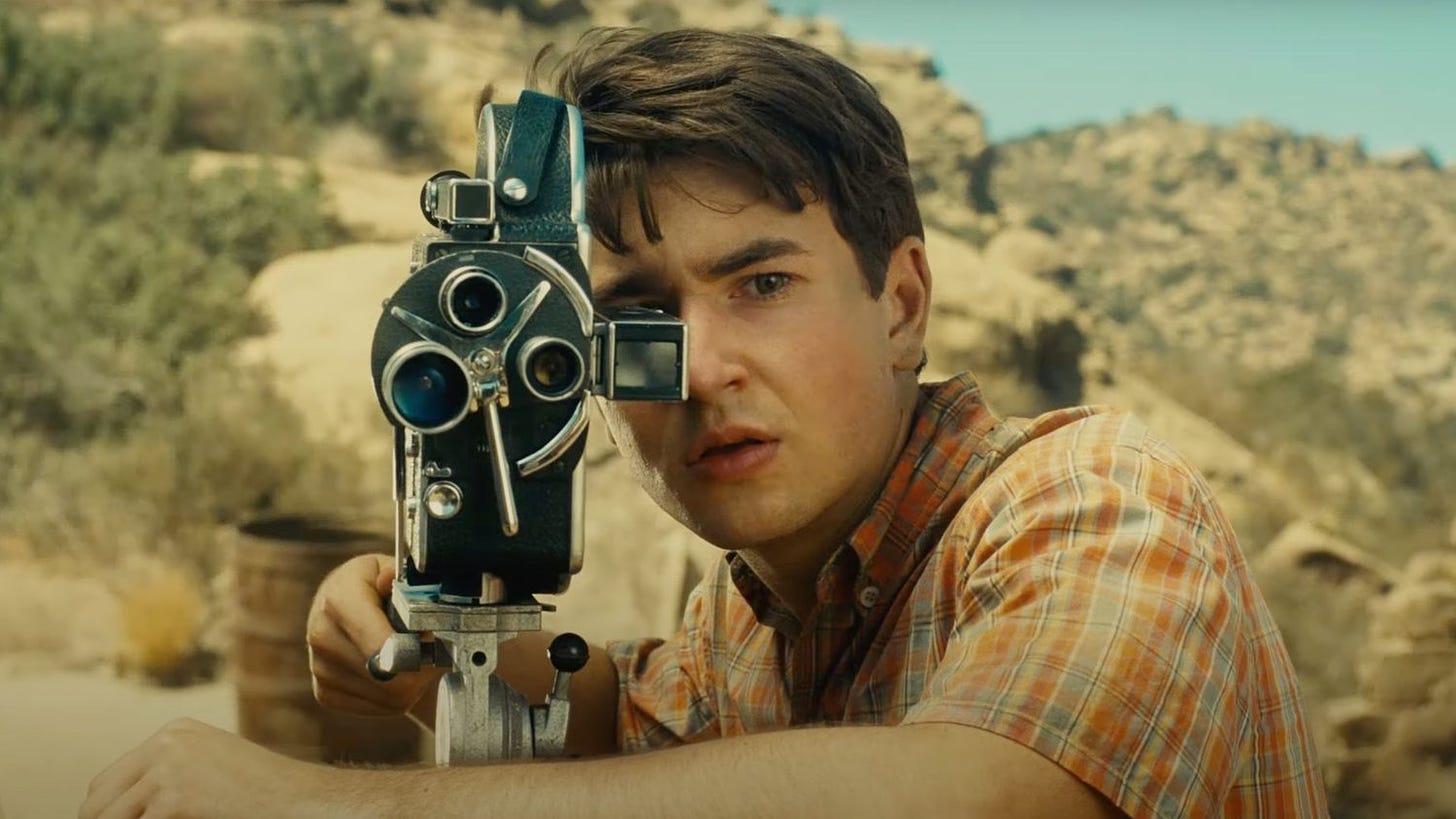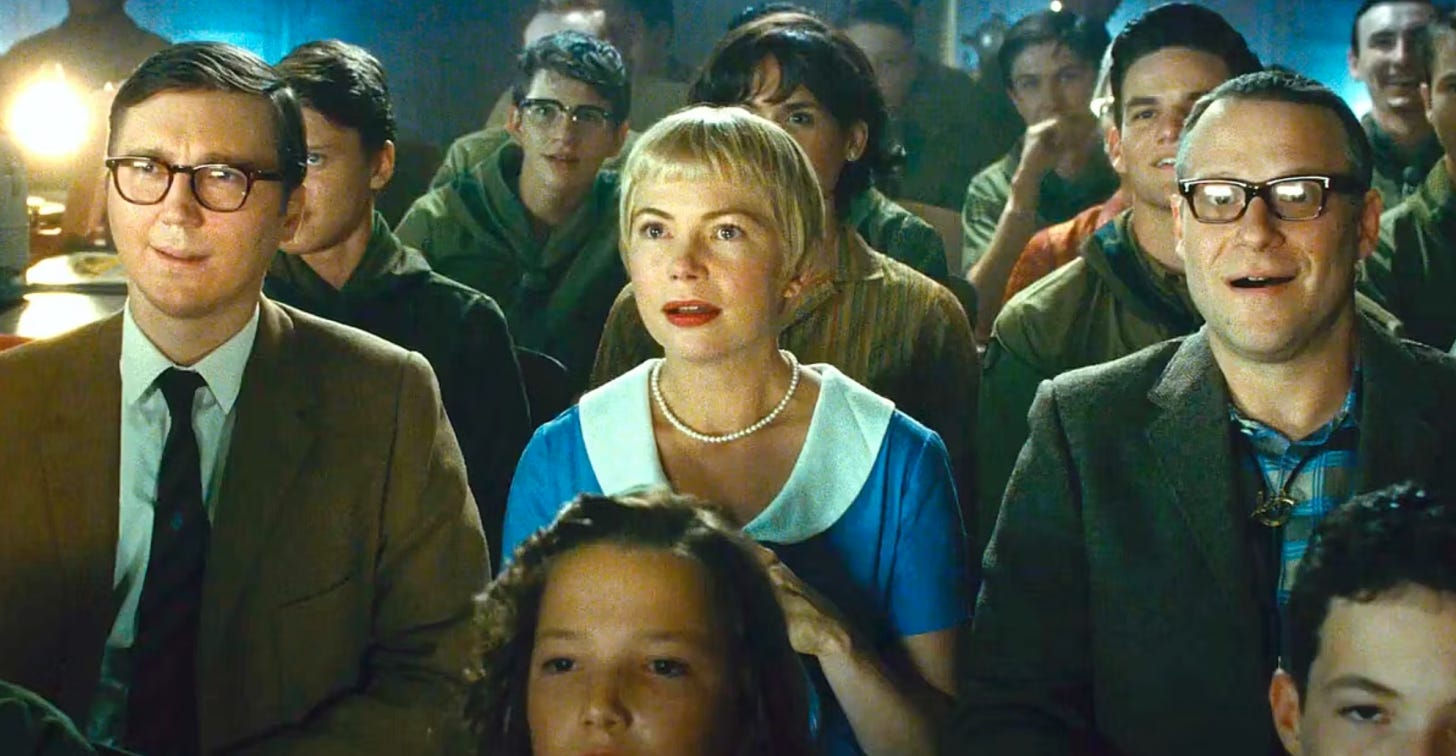Love Letters to the Movies Part 3: Journeys Through the Past
A three-part look at movies about loving movies concludes with three recently posted love letters: 'The Fabelmans,' 'Babylon,' and 'Empire of Light.'
Inspired by the end-of-the-year convergence of movies about the magic of making and going to the movies — specifically The Fabelmans, Empire of Light, and Babylon — we’re having a three-part conversation about “love letters to the movies.” We started two weeks ago with a discussion of the silent era with Buster Keaton’s Sherlock Jr. and Martin Scorsese’s Hugo. Last week, we talked about two affectionate nostalgia pieces set around movie houses of the past: Guiseppe Tornatore’s Cinema Paradiso and Joe Dante’s Matinee. We’re going to conclude the series with a discussion of the three movies that inspired it in the first place, kicking off with a look at Steven Spielberg’s autobiographical coming-of-age story, The Fabelmans.
Keith: When Steven Spielberg first revealed his next film would be inspired by his own life, it kind of took me by surprise. It’s never been hard to find Spielberg in his own work. His passions, fears, and abiding themes have followed him through his entire career: the end of childhood, American history, the future of humanity, shattered families, wonder — feel free to keep adding to that. But he’s never really turned the camera on himself.
The Fabelmans, however, suggests he’s kind of always turned the camera on himself, that those passions, fears, and abiding themes go a long way to telling Spielberg’s story. In a way, The Fabelmans simply connects the dots his films have created. It’s a Spielberg origin story with a particular interest in how Spielberg surrogate Sammy Fabelman (played as a boy by Mateo Zoryon Francis-DeFord and as a teen by Gabriel LaBelle) becomes a filmmaker while his parents’ marriage disintegrates in the background.
Sometimes deep in the background: part of why this film works so well is its tight focus on Sammy’s perspective. And, as a kid, he doesn’t always fully understand what he sees, if he sees it at all. There’s one moment when Sammy’s mother Mitzi (Michelle Williams) smacks him on the back and feels awful about it. It's a traumatic, what-kind-of-mother-am-I? moment for her. But when she brings it up later, Sammy doesn’t even seem to remember it.
The Fabelmans feels like an attempt to revisit that time through the eyes of an adult, which surely can’t have been easy. The script, co-written by Spielberg and Tony Kushner, doesn’t let Sammy off the hook for missteps but it does understand he’s a kid. It’s also generous to both Mitzi and Sammy’s father Burt (Paul Dano) while still capturing their flaws. She’s a free spirit who put her artistic impulses in the freezer to raise a family and support his career as a brilliant engineer in the early days of computers. They love each other but they also don’t work together. The film brings great affection to their portrayal, but it also doesn’t shy away from the wringer Sammy’s upbringing is being put through.
That the film remains so winning is kind of miraculous, but that, too, is in keeping with Spielberg’s career. His refusal to draw a line between entertainment and art is part of what’s made his work so fascinating. Schindler’s List is a haunting film that also uses all the tools Spielberg has developed as a director of gripping suspense movies. Raiders of the Lost Ark is a popcorn movie filled with anxieties about fascism and the perversion of religion. The Fabelmans is his most personal film but one that balances insight and reflection with entertainment (even if, sigh, nobody went to see it in the theaters). I know you're a fan, too, Scott. Do you have any particular sections you want to talk about? I know I definitely want to talk about Logan and Chad and the Senior Skip Day movie.
Scott: One question I want to talk about in relation not only to The Fabelmans but all three of the new films we’re discussing in Part III is: Why now? There are two answers to that question as it relates to Spielberg: We have been seeing pieces of his life for years in his movies, but this is the first time he’s been so direct about it, and it seems to me that age has given him insight into adult relationships from his childhood that he wouldn’t have fully understood at the time. But the love-letter-to-the-movies part of The Fabelmans arrives at a time when theatrical moviegoing is deeply in peril, hastened by dramatic shifts in the home viewing landscape—which themselves were hastened by a pandemic that crippled the business.
Keep reading with a 7-day free trial
Subscribe to The Reveal to keep reading this post and get 7 days of free access to the full post archives.






